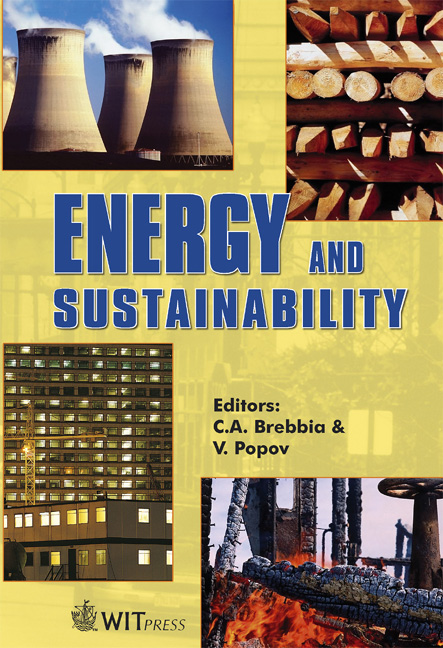An Optimization Of Effective Energy Management As A Tool To Facilitate Managers
Price
Free (open access)
Transaction
Volume
105
Pages
10
Published
2007
Size
336 kb
Paper DOI
10.2495/ESUS070071
Copyright
WIT Press
Author(s)
B. Geethanjali, L. M. Hansa & M. Daniel
Abstract
Energy management in existing building services installations is an essential focus of contemporary facilities management. This paper discusses how the business is wasting the energy by emitting pollution. Energy management is not a one-off exercise; to be effective it needs to be an ongoing process. This research has addressed a quantitative approach for improving energy management through applying statistical techniques aimed at identifying and controlling factors linked to energy consumption rates at manufacturing plants. Wasting energy also reduces our profitability. For every £1 saved on energy costs, most UK businesses would have to make £10 worth of sales to make the same £1 of profit. The support programmers on energy efficiency can prove that most companies can reduce their energy costs by at least 10% through the implementation of simple housekeeping measures and by as much as 30% through the implementation of cost-effective measures. Monitoring & Targeting (M&T) provides the means to identify where energy is used, where it is wasted and where to have the greatest effect in implementing energy savings measures. A good way of finding energy waste initially is to conduct an energy walk-round. The 5 steps to effective energy management are Commitment; Understand; Plan and Organise; Act; Control, Monitor and Review. It provides useful information when implementing these steps and their associated energy saving measures or the effect of other activities. These steps can show the deviation from expected patterns of energy use when controls are installed or re-set or production levels change. Finally, we identify the utilities invoices and ensure that we pay only for the fuel that is actually used, and compare to the current costs. Keywords: energy management, green house gas (GHG), emission factor, carbon dioxide, fuel types.
Keywords
energy management, green house gas (GHG), emission factor, carbon dioxide, fuel types.





